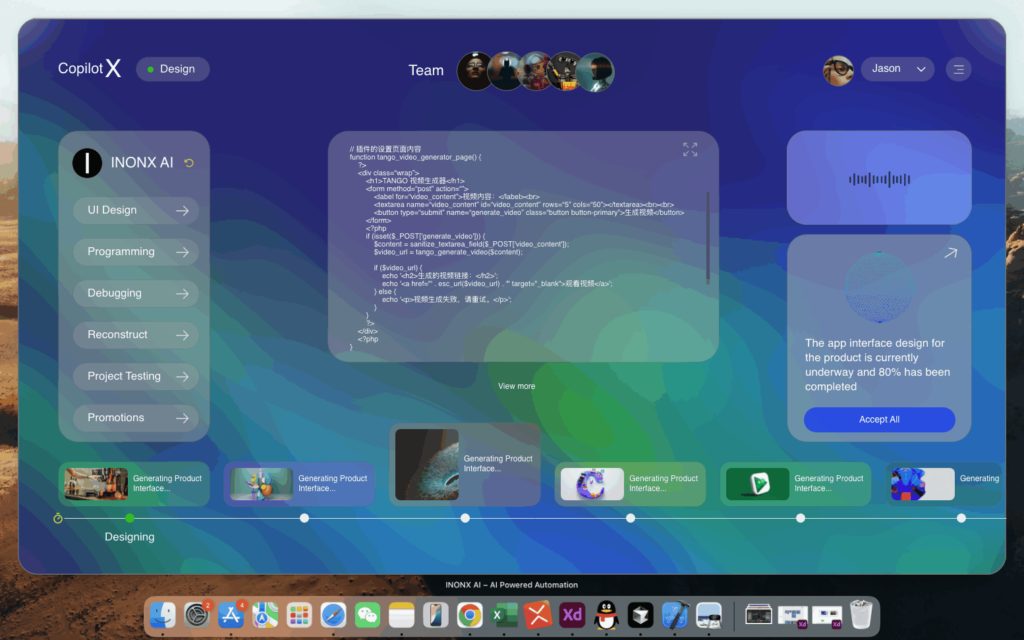In an era driven by technology, artificial intelligence (AI) stands at the forefront of innovation, substantially transforming various industries. Among the most notable advancements are AI Virtual Assistants, AI-based Cloud Solutions, and AI for Digital Marketing. These technologies not only enhance operational efficiency but also provide personalized customer experiences. Here, we delve into the latest trends, applications, and technical insights surrounding these powerful AI-driven tools and solutions.
AI Virtual Assistants have become increasingly prevalent in both consumer and business settings. They are designed to simulate human interaction and can perform tasks ranging from answering queries to managing complex organizational workflows. These virtual assistants use natural language processing (NLP) and machine learning algorithms to understand and respond to user requests effectively. Examples include Amazon’s Alexa, Apple’s Siri, and Google Assistant. According to a report by Grand View Research, the global AI virtual assistant market is expected to reach $19.6 billion by 2026, growing at a compound annual growth rate (CAGR) of 34.9%.
One significant application of AI virtual assistants is in customer service. Many companies have integrated them into their customer support systems to provide 24/7 assistance. For instance, IBM’s Watson Assistant is used by several businesses to manage customer inquiries, allowing human agents to focus on complex issues while reducing response times. This blend of human and AI interaction enhances the overall customer experience and drives customer satisfaction.
Another trend in AI Virtual Assistants is their integration into the workplace. Companies are incorporating AI assistants into everyday tasks, automating scheduling, email management, and even employee onboarding. Tools like x.ai, which schedules meetings, and Clara, which facilitates communication and organization, allow teams to work more collaboratively and efficiently. This demand for AI virtual assistants will likely continue to expand as businesses seek to streamline operations and reduce costs further.
**AI-based Cloud Solutions: Transforming Data Management**
As businesses increasingly rely on cloud computing, AI-based cloud solutions have emerged as a game changer. These solutions leverage AI capabilities to help organizations manage vast amounts of data and automate processes. Cloud platforms like Microsoft Azure and Google Cloud are integrating AI tools that empower businesses to analyze data in real-time, predict trends, and make data-driven decisions.
One of the most compelling benefits of AI-based cloud solutions is their ability to provide scalable services. The cloud allows businesses to ispace and adapt their operations, whether they are small startups or established enterprises. Moreover, security is enhanced through AI algorithms that identify and respond to threats more rapidly than traditional methods. For example, cloud-based security solutions powered by AI can continuously monitor systems for unusual patterns and mitigate risks.
AI in cloud computing also extends to optimization. Companies can utilize AI algorithms to improve resource allocation, enhance system performance, and reduce operational costs. For instance, Google Cloud’s AI tools can automatically scale resources based on real-time demand, ensuring that businesses only pay for what they use. This level of automation not only optimizes performance but also frees up valuable human resources for strategic initiatives.
As organizations continue to embrace digital transformation, the demand for AI-driven cloud solutions will likely surge. A report from MarketsandMarkets estimates that the global AI in the cloud market will reach $22.5 billion by 2025, growing at a CAGR of 25.2%. This growth will be fueled by the growing need for real-time analytics, improved customer experiences, and heightened security measures.
**AI for Digital Marketing: Revolutionizing Engagement Strategies**
Digital marketing has undergone transformative changes with the advent of AI. AI for digital marketing enables companies to gain insights into consumer behavior, enhance engagement strategies, and optimize campaigns. One significant benefit is the power of predictive analytics, which allows marketers to anticipate consumer needs and preferences based on historical data.
Personalization has become a cornerstone of digital marketing. AI algorithms can analyze customer data and behavior, delivering tailored content across various channels. For instance, platforms like Adobe Experience Cloud use AI-driven analytics to create personalized marketing campaigns that resonate with target audiences. This not only improves engagement but also drives conversion rates, ultimately enhancing brand loyalty.
Chatbots, another application of AI, are on the rise in the digital marketing landscape. These tools enable brands to interact with customers in real-time, answering queries and providing recommendations based on user preferences. With the ability to handle multiple inquiries simultaneously, chatbots facilitate immediate customer support, enhancing the overall shopping experience. Businesses such as Sephora and Starbucks leverage AI-driven chatbots to engage customers and offer personalized services.
Moreover, AI allows marketers to optimize advertising strategies through advanced data analytics. Google Ads and Facebook Ads are integrating AI to provide insights into audience targeting and campaign performance. Algorithmic advertising adjusts ad placements in real-time, ensuring advertisements reach the right audience at the right time. This level of precision not only reduces ad spend but also increases ROI, making marketing efforts more effective.
The overall impact of AI on digital marketing is evident. According to Statista, AI usage in marketing is projected to add $2.6 trillion in business value by 2023. Companies that leverage AI for their digital marketing efforts will undoubtedly gain a competitive edge in the marketplace.
**Real-World Use Cases: Success Stories in AI Implementation**
Numerous companies across various industries successfully employ AI virtual assistants, cloud solutions, and AI in digital marketing to drive growth and improve efficiency. For example, in healthcare, companies are integrating AI virtual assistants to assist doctors with patient management and streamline administrative tasks. These tools collect patient data, schedule appointments, and provide easy access to medical records, allowing healthcare providers to focus on patient care.
In the financial sector, AI-based cloud solutions enable banks and financial institutions to enhance customer service by using predictive analytics to anticipate customers’ needs. For instance, Capital One leverages AI-driven insights to tailor its financial products and maximize customer satisfaction. The integration of AI has been transformative for these organizations, paving the way for smarter banking.
Retail giants like Amazon exemplify the power of AI in enhancing customer engagement and optimizing supply chain management. With sophisticated algorithms analyzing vast amounts of consumer data, Amazon is able to offer personalized product recommendations, manage inventory efficiently, and streamline logistics. The success of Amazon’s AI-driven strategies has set a benchmark in the industry, prompting competitors to accelerate their AI adoption.
Finally, the travel industry is witnessing significant advancements through AI implementation. Companies like Expedia utilize AI to analyze customer preferences and facilitate seamless booking experiences. Virtual travel assistants provide real-time support, helping travelers plan and adjust their itineraries instantly.
**Concluding Thoughts: The Era of AI Innovation**
AI virtual assistants, AI-based cloud solutions, and AI for digital marketing are not just trends; they represent a paradigm shift in how businesses operate. With the potential to enhance customer experiences, streamline operations, and boost profitability, these technologies are revolutionizing industries. As organizations continue to navigate the complexities of the digital world, embracing AI will be paramount for future success.
As we move forward, it’s clear that integrating AI into business strategies is not merely an option; it’s a necessity. The organizations that leverage these innovations will be the ones that thrive in the competitive landscape of tomorrow. Ensuring that your business stays ahead of the curve in adopting these technologies is crucial for driving growth and sustainability.
Through diligent research, collaboration, and implementation, the opportunities presented by AI can be harnessed to create remarkable transformations across industries, marking the dawn of a new era in business excellence.


























